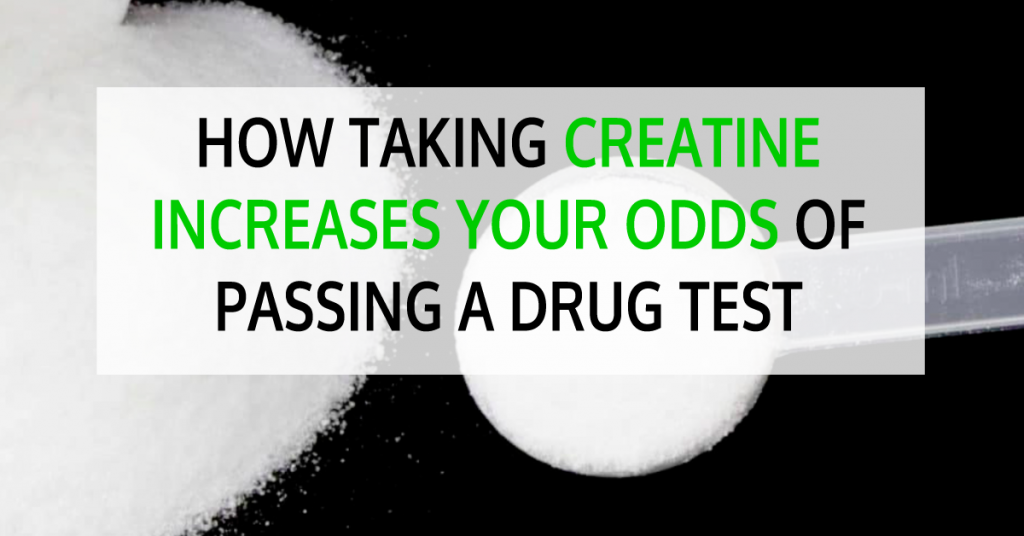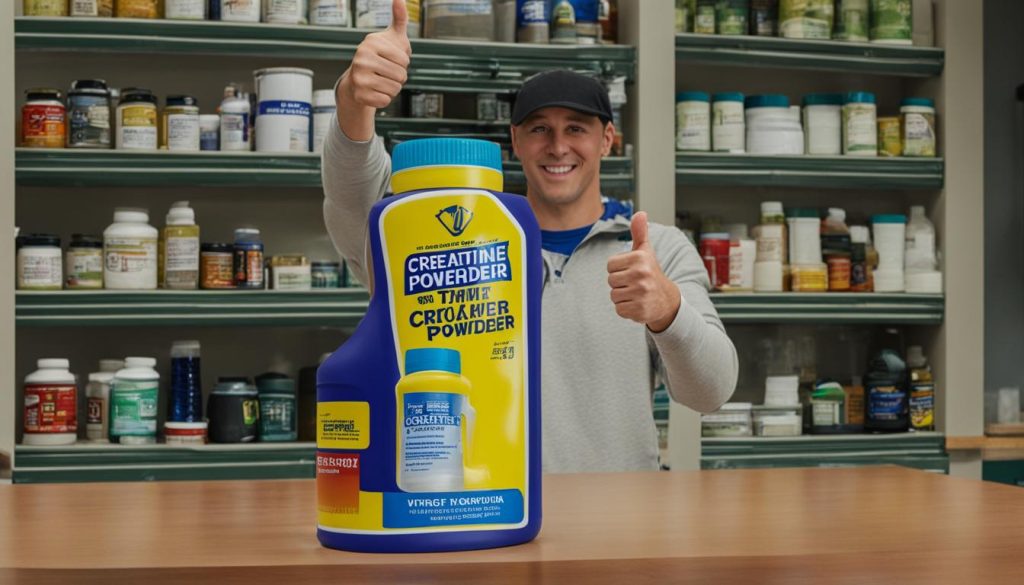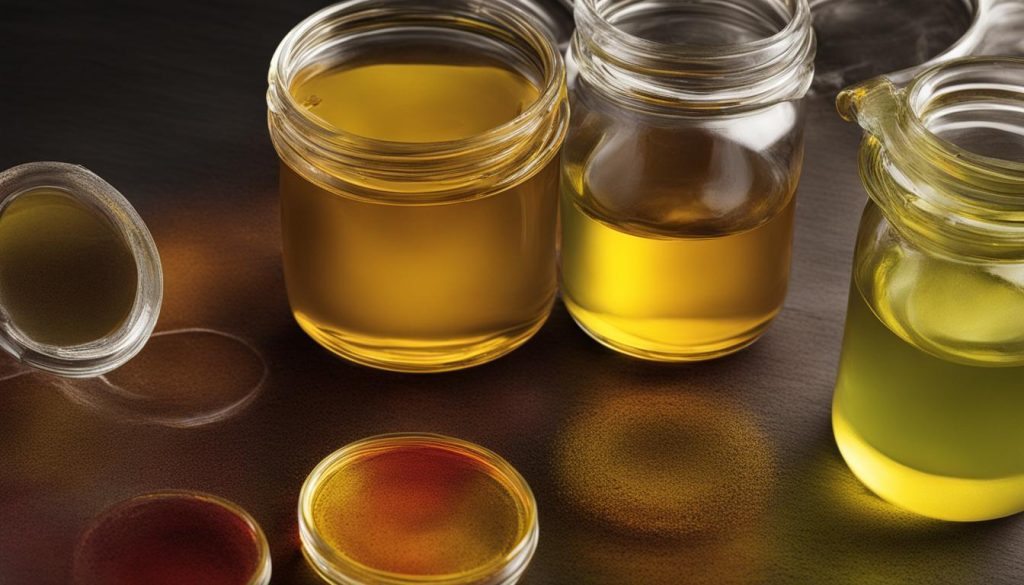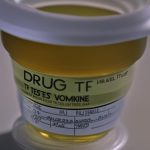
When it comes to drug testing, the outcomes can be influenced by various factors. One such factor is the consumption of creatine and water intake. In this article, we will delve into the relationship between water intake, creatine, and drug test outcomes, particularly in the context of passing a drug test and masking THC.
Drinking a high volume of fluids, including water, has been found to significantly reduce the concentration of drugs in urine samples. However, drug testing protocols often include measuring the concentration of creatinine in urine to detect diluted samples. Ingesting creatine or creatinine can increase the concentration of creatinine in urine, potentially masking the dilution of a sample and leading to false negative results.
Understanding the impact of water intake and creatine on drug test outcomes is essential for individuals undergoing drug testing. By being aware of the potential effects of these factors, individuals can take necessary precautions and make informed decisions regarding their intake of fluids and creatine supplements during the testing process.
Key Takeaways:
- Drinking a high volume of fluids, including water, can dilute the concentration of drugs in urine samples.
- Ingesting creatine or creatinine can increase the concentration of creatinine in urine, potentially masking the dilution of a sample.
- Excessive dilution or masking of a urine sample can raise suspicion and lead to further testing.
- Creatine supplementation is widely used for performance enhancement, but its ingestion during drug testing can impact the test outcomes.
- Understanding the limitations of drug test methods and the various factors affecting test results is crucial for accurate interpretation.
The Relationship Between Creatine and Urine Dilution
Ingesting creatine or creatinine can have a significant impact on urine dilution during drug testing. When creatine is ingested, it increases the concentration of creatinine in urine, resulting in higher creatinine levels. This can mask the dilution of a urine sample, making it difficult to detect the presence of drugs. Therefore, creatine supplementation and the use of detox drinks can potentially affect the outcome of a drug test.
It is important to be aware of the potential masking effects of creatine when undergoing a drug test. While creatine supplements are legal and widely used, their ingestion during drug testing can impact the test outcomes. The dilution method, which involves ingesting large amounts of liquid to dilute the concentration of drugs in urine samples, can also be influenced by creatine intake. Diluting urine can raise suspicion and lead to further testing, so it is crucial to find the right balance between hydration and avoiding excessive dilution during a drug test.
To summarize, creatine supplementation and the dilution method can both impact urine dilution during drug testing. Ingesting creatine or creatinine can increase creatinine levels in urine, potentially masking sample dilution. It is important to disclose the use of creatine supplements and be cautious when using the dilution method to ensure accurate drug test results.
| Creatine Intake | Impact on Urine Dilution |
|---|---|
| Increased creatine supplementation | Raised creatinine levels, potentially masking sample dilution |
| Use of detox drinks | Potential impact on creatinine levels and urine dilution |
The Impact of Water Intake on Drug Test Results
When it comes to passing a drug test, the amount of water you drink can make a significant difference in the outcome. Drinking a large volume of water can dilute the concentration of drugs in urine, potentially leading to a negative test result. This is because a high fluid intake can reduce the concentration of drugs in the urine sample, making it harder to detect their presence. However, it’s important to find the right balance between hydration and avoiding excessive dilution.
While diluting urine can help in passing a drug test, excessively diluting it can raise suspicion and lead to further testing. Laboratories are aware of this tactic and often have specific guidelines in place to detect diluted samples. So, it’s crucial to understand the potential risks and consequences of over-hydration during a drug test.

It’s important to note that drug testing agencies are aware of the impact of water intake on test results, and they have measures in place to detect dilution. By diluting your urine too much, you may raise red flags and prompt additional testing procedures. It’s crucial to follow the guidelines provided by the testing agency and find the right balance between hydration and maintaining the integrity of the urine sample.
So, while water intake can be helpful in passing a drug test, it’s essential to exercise caution and not overdo it. The goal is to achieve a balanced hydration level without raising suspicion. Be mindful of the potential consequences of excessive dilution and follow any instructions provided by the testing agency to ensure accurate and valid drug test results.
The Role of Creatine in Drug Testing
Creatine is a naturally occurring substance found in the body’s skeletal muscles and can also be obtained through consuming lean red meats and fish. It is a legal supplement widely used by athletes and fitness enthusiasts to improve performance and enhance muscle metabolism. However, it is crucial to understand the potential impact of creatine intake on drug test outcomes.
During a drug test, the concentration of creatinine in the urine is often measured. Ingesting creatine or creatinine can increase the concentration of creatinine in the urine, potentially masking the dilution of a sample. This can lead to false negatives, as the presence of THC and other drug metabolites may not be accurately detected. It is important to disclose the use of creatine supplements when undergoing a drug test to ensure accurate results.
Additionally, excessive creatine intake can result in higher creatinine levels in urine, which may raise suspicion during drug testing. While creatine supplementation is generally considered safe and legal, it is crucial to use it responsibly and in recommended dosages. It is also essential to note that drug tests have limitations, and factors like dilution, masking, or sample adulteration can affect the accuracy of the results.
| Factors | Impact on Drug Test Outcomes |
|---|---|
| Creatine Supplements | Potential masking of THC and other drug metabolites in urine samples |
| Creatinine Concentration | Possible dilution of urine samples, leading to suspicion during drug testing |
| Creatine Intake | No significant negative impact on renal function, as long as recommended dosages are followed |
| Detection of Drug Metabolites | Possible limitations due to factors like detoxification methods and hydration levels |
Understanding the role of creatine in drug testing is crucial for accurate interpretation of results. It is important to be aware of the potential masking effects of creatine supplementation on THC and other drug metabolites. By using creatine responsibly, disclosing its use during drug testing, and understanding the limitations of drug tests, individuals can ensure accurate and reliable results.
Understanding the Dilution Method and Creatinine Levels
The dilution method is a common approach used to manipulate urine samples during drug testing. It involves consuming large amounts of liquid, such as water, in an attempt to dilute the concentration of drugs in the urine. However, while this method may seem like a viable strategy to pass a drug test, it is not foolproof.
One of the key factors to consider when using the dilution method is the impact it can have on creatinine levels in the urine. Creatinine is a waste product produced by muscle metabolism, and its level in urine is commonly used as an indicator of sample integrity. When urine is diluted through excessive fluid intake, creatinine levels may decrease, raising suspicion of sample adulteration.
To illustrate the potential effect of the dilution method on creatinine levels, consider the following table:
| Creatinine Level before Dilution | Volume of Fluid Consumed | Creatinine Level after Dilution |
|---|---|---|
| 20 mg/dl | 1 liter of water | 15 mg/dl |
| 20 mg/dl | 2 liters of water | 10 mg/dl |
| 20 mg/dl | 3 liters of water | 5 mg/dl |
As shown in the table, the more fluid consumed, the lower the creatinine level becomes. This can raise suspicion during a drug test and may lead to further scrutiny or the need for a retest.
It is important to note that the dilution method should be approached with caution and used responsibly. While it may be tempting to employ this strategy to pass a drug test, it is important to understand the potential risks and limitations associated with it.
The Effects of Creatine Ingestion on Drug Test Outcomes
Ingesting creatine can have a significant impact on drug test outcomes, particularly in urine testing. When creatine is ingested, it increases the concentration of creatinine in the urine, potentially masking the dilution of a sample. This can lead to false negative results or the rejection of a sample due to matrix adulteration. It is crucial to be aware of the potential effects of creatine ingestion when undergoing a drug test.
To ensure accurate results, it is important to disclose the use of creatine supplements prior to the drug test. This information allows the testing laboratory to account for the potential increase in creatinine levels and make an accurate interpretation of the results. Additionally, it is essential to follow the recommended dosage of creatine supplements and not exceed the recommended intake, as excessive creatine ingestion can raise suspicion and compromise the integrity of the urine sample.
Furthermore, if you are considering cleansing methods or using diuretics to detoxify the body prior to a drug test, it is important to take into account the potential masking effects of creatine. These methods can also dilute urine samples and potentially impact the accuracy of the test results. It is essential to use these methods responsibly and be aware of their limitations.
The Link Between Creatine and Creatinine Conversion
In drug testing, understanding the link between creatine and creatinine conversion is crucial for accurate interpretation of results. Creatine, a naturally occurring substance found in the body’s skeletal muscles and obtained through certain foods, can be converted to creatinine in an acidic environment. This conversion process increases the availability of creatinine in urine samples, leading to higher creatinine concentrations.
The pH level of the urine also plays a role in the conversion of creatine to creatinine. In an acidic environment, such as when incubated in orange juice, the conversion process is accelerated. This means that creatine ingestion, especially in combination with acidic substances, can further mask the dilution of a urine sample during a drug test.
It is important to consider the factors that can affect creatinine levels when interpreting drug test results. The conversion of creatine to creatinine and the influence of urine pH can have a significant impact on the concentration of creatinine in a sample, potentially affecting the accuracy of the test results.
The Link Between Creatine and Creatinine Conversion
In drug testing, the conversion of creatine to creatinine is an important consideration. Creatine, a naturally occurring substance found in the body’s muscles, can be converted to creatinine in an acidic environment. This conversion process increases the concentration of creatinine in urine samples, which can mask the dilution of a sample during a drug test.
The conversion of creatine to creatinine is influenced by factors such as urine pH and the presence of acidic substances. In an acidic environment, such as when incubated in orange juice, the conversion process is accelerated, leading to higher creatinine concentrations in the urine. This can have implications for the accuracy of drug test results, as the dilution of a sample may not be accurately detected.
When interpreting drug test results, it is important to consider the link between creatine and creatinine conversion. The concentration of creatinine in a urine sample can be influenced by factors that affect the conversion process, such as urine pH and the presence of acidic substances. By understanding these factors, we can better interpret drug test results and make informed decisions.
Table: Factors Affecting Creatinine Conversion
| Factors | Impact on Creatinine Conversion |
|---|---|
| Urine pH | Acidic environment accelerates conversion |
| Presence of acidic substances | Increases conversion rate |
The Impact of Creatine on Renal Function
When it comes to concerns about creatine intake and its effects on kidney health, research suggests that moderate consumption of creatine does not have a significant negative impact on renal function. Creatine is a naturally occurring compound found in the body’s skeletal muscles and can also be obtained through certain foods like lean red meats and fish. It plays an important role in energy production within muscle cells and is widely used as a legal supplement by athletes and fitness enthusiasts.
While excessive intake of creatine supplements has been associated with potential side effects, such as gastrointestinal distress and muscle cramps, it is important to note that moderate use within recommended dosages does not pose a significant risk to kidney health. Studies have shown that creatine intake does not lead to adverse effects on renal function in healthy individuals. However, it is always advisable to consult with a healthcare professional before starting any new dietary or supplement regimen.
Overall, the available evidence suggests that creatine intake, in moderation, is generally safe and does not have a detrimental impact on kidney health. However, individuals with pre-existing kidney conditions or concerns should exercise caution and seek medical advice before using creatine supplements. It is also important to note that proper hydration is essential when using creatine, as it can increase water retention in the body. Staying well-hydrated can help support kidney function and overall health.

The Role of Proper Hydration
Proper hydration is vital for maintaining optimal kidney function, regardless of creatine intake. Adequate water intake helps flush out waste products and toxins from the body, supporting overall renal health. Drinking enough water also helps prevent the formation of kidney stones by diluting urine and reducing the risk of crystal formation. It is recommended to consume at least 8 glasses (64 ounces) of water per day to support proper hydration and promote kidney health.
Factors Affecting Drug Test Results
When it comes to drug testing, it is crucial to be aware of the various factors that can affect the accuracy of the results. One of these factors is sample adulteration, which refers to any tampering or manipulation of the urine sample. This can include dilution or the use of substances like creatine to mask the presence of drugs. Sample adulteration can significantly impact the reliability of the test results, making it important to ensure the integrity of the sample.
Another factor to consider is urine testing methods and their ability to detect specific drug metabolites. Different drugs produce different metabolites in the body, and the effectiveness of urine testing can vary depending on the drug being tested for and the specific metabolite being targeted. Understanding the limitations of urine testing and the potential for false negatives or false positives is crucial for accurate interpretation of the results.
Detox kits and cleansing methods are often used in an attempt to rid the body of drug metabolites prior to a drug test. However, it is important to use these methods responsibly and with caution. Detox kits can vary in effectiveness, and some may not fully eliminate all traces of drugs from the body. Additionally, hydration levels can also impact the concentration of drug metabolites in urine. Drinking excessive amounts of water can dilute the urine sample, potentially affecting the accuracy of the results.
| Factors Affecting Drug Test Results | Implications |
|---|---|
| Sample Adulteration | Tampering or manipulation of the urine sample can impact the reliability of the results. |
| Urine Testing Methods | The ability to detect specific drug metabolites can vary depending on the testing method and the drug being targeted. |
| Detox Kits and Cleansing Methods | These methods can vary in effectiveness and may not fully eliminate all traces of drugs from the body. |
| Hydration Levels | Drinking excessive amounts of water can dilute the urine sample, potentially affecting the accuracy of the results. |
Overall, it is important to understand the factors that can impact drug test results and to approach drug testing with caution and transparency. By being aware of these factors and using detox kits and cleansing methods responsibly, individuals can strive for accurate and reliable test results.

Understanding Drug Test Methods and Limitations
In drug testing, various methods are used to determine the presence of drugs in an individual’s system. These methods include urine testing, blood testing, sweat testing, and saliva testing. Each method has its own advantages and limitations, and understanding them is crucial for accurate interpretation of the results.
Urine testing is the most common method used for drug testing. It can detect a wide range of drugs and is relatively non-invasive. However, urine testing has its limitations. The accuracy of the results can be affected by factors such as dilution, masking, or sample adulteration. It is important to be aware of these factors and their potential impact on the reliability of urine test results.
Blood testing is another method used for drug testing, especially in specific situations such as post-accident investigations or when immediate drug use needs to be detected. Blood testing is invasive and requires medical professionals to collect the sample. This method provides a more accurate and precise analysis of drug presence and levels in the body. However, blood testing is not commonly used for routine drug screening due to its invasiveness and higher cost.
Sweat and saliva testing are emerging methods for drug testing. Sweat testing involves collecting sweat samples using specialized patches, while saliva testing involves collecting saliva samples using swabs. These methods are becoming more prevalent due to their ease of sample collection and non-invasiveness. However, their reliability and accuracy may still be subject to further research and development.
| Drug Test Method | Advantages | Limitations |
|---|---|---|
| Urine Testing | Non-invasive, detects a wide range of drugs | Potential for dilution, masking, or sample adulteration |
| Blood Testing | Accurate and precise analysis of drug presence and levels | Invasive, higher cost, not commonly used for routine screening |
| Sweat Testing | Non-invasive, ease of sample collection | Reliability and accuracy may require further research |
| Saliva Testing | Non-invasive, ease of sample collection | Reliability and accuracy may require further research |
It is important to note that regardless of the method used, drug tests have their limitations. Factors such as dilution, masking, or sample adulteration can affect the accuracy of the results. Therefore, it is crucial to follow proper testing protocols and ensure sample integrity to obtain reliable and informative drug test outcomes.
Conclusion
In conclusion, the use of creatine supplementation and water intake can have a significant impact on drug test outcomes. When ingested, creatine or creatinine can elevate the concentration of creatinine in urine, potentially masking the dilution of a sample. This increases the difficulty of detecting the presence of drugs during testing. Similarly, excessive fluid intake, including water, can dilute urine and hinder the accuracy of drug test results.
It is essential to be aware of these factors and to disclose the use of creatine supplements when undergoing a drug test. By doing so, we can ensure accurate interpretation of the results. Moreover, understanding the limitations of drug test methods and the various factors affecting test outcomes is crucial.
Ultimately, our aim is to ensure accurate and reliable drug test results. By considering the impacts of creatine supplementation, water intake, and urine dilution, we can effectively address potential challenges in drug testing procedures and maintain the integrity of the testing process.
FAQ
Can creatine influence drug test outcomes?
Yes, ingesting creatine or creatinine can increase the concentration of creatinine in urine, potentially masking the dilution of a sample and affecting drug test results.
Does water intake affect drug test results?
Yes, drinking a large volume of water can dilute the concentration of drugs in urine, potentially leading to negative drug test results. However, excessively diluting urine can also raise suspicion and result in further testing.
What is the relationship between creatine and urine dilution?
Ingesting creatine or using detox drinks can contribute to urine dilution, which can affect the concentration of drugs in urine samples and potentially impact drug test outcomes.
How does creatine supplementation affect drug testing?
Creatine supplementation can increase the concentration of creatinine in urine, potentially masking the dilution of a sample and affecting the detection of drugs, such as THC. It is important to disclose creatine supplement use during drug testing.
What is the dilution method and how does it relate to creatinine levels?
The dilution method involves ingesting large amounts of liquid, which can dilute drugs in urine samples but also lower creatinine levels. Low creatinine levels can raise suspicion of sample adulteration or dilution during drug testing.
What are the effects of creatine ingestion on drug test outcomes?
Ingesting creatine can increase creatinine levels in urine, potentially masking the dilution of a sample. This can lead to false negative results and affect the accuracy of drug test outcomes.
How does creatine conversion impact drug testing?
Creatine can be converted to creatinine in an acidic environment, such as when incubated in orange juice. This conversion process increases the availability of creatinine in urine, potentially masking the dilution of a sample during a drug test.
Does creatine intake affect renal function?
Studies have shown that moderate creatine intake does not have a significant negative impact on renal function. However, excessive creatine supplementation can have potential side effects, and it is important to use creatine supplements responsibly and in recommended dosages.
What factors can affect drug test results?
Factors such as sample adulteration, urine dilution, detoxification methods, and hydration levels can influence the accuracy of drug test results. It is important to be aware of these factors when undergoing a drug test.
What are the different drug test methods and their limitations?
Drug tests can be conducted using urine, blood, sweat, and saliva samples. Each method has its advantages and limitations. Urine testing is the most common method but can be influenced by factors such as dilution or masking. Blood, sweat, and saliva testing are alternative methods that offer ease of sample collection.
















